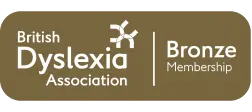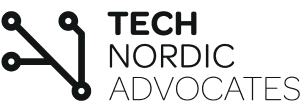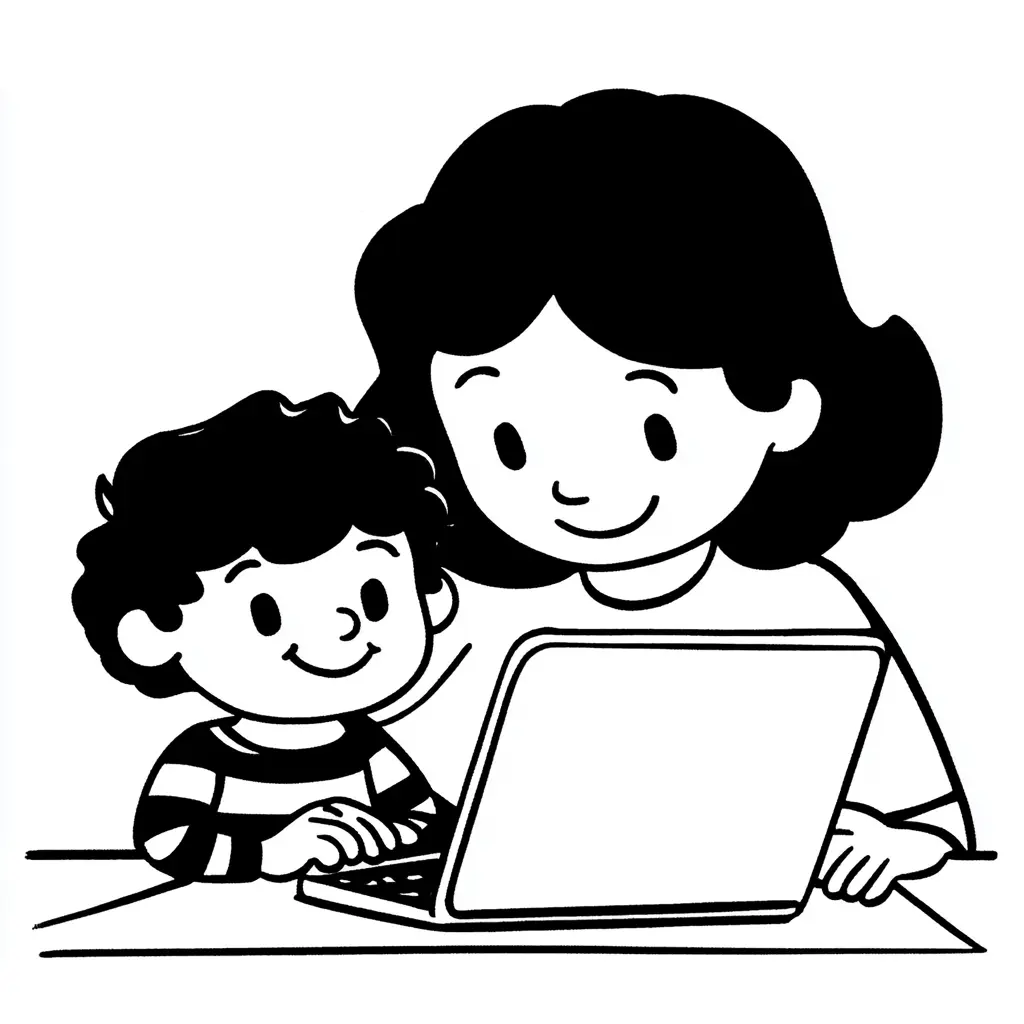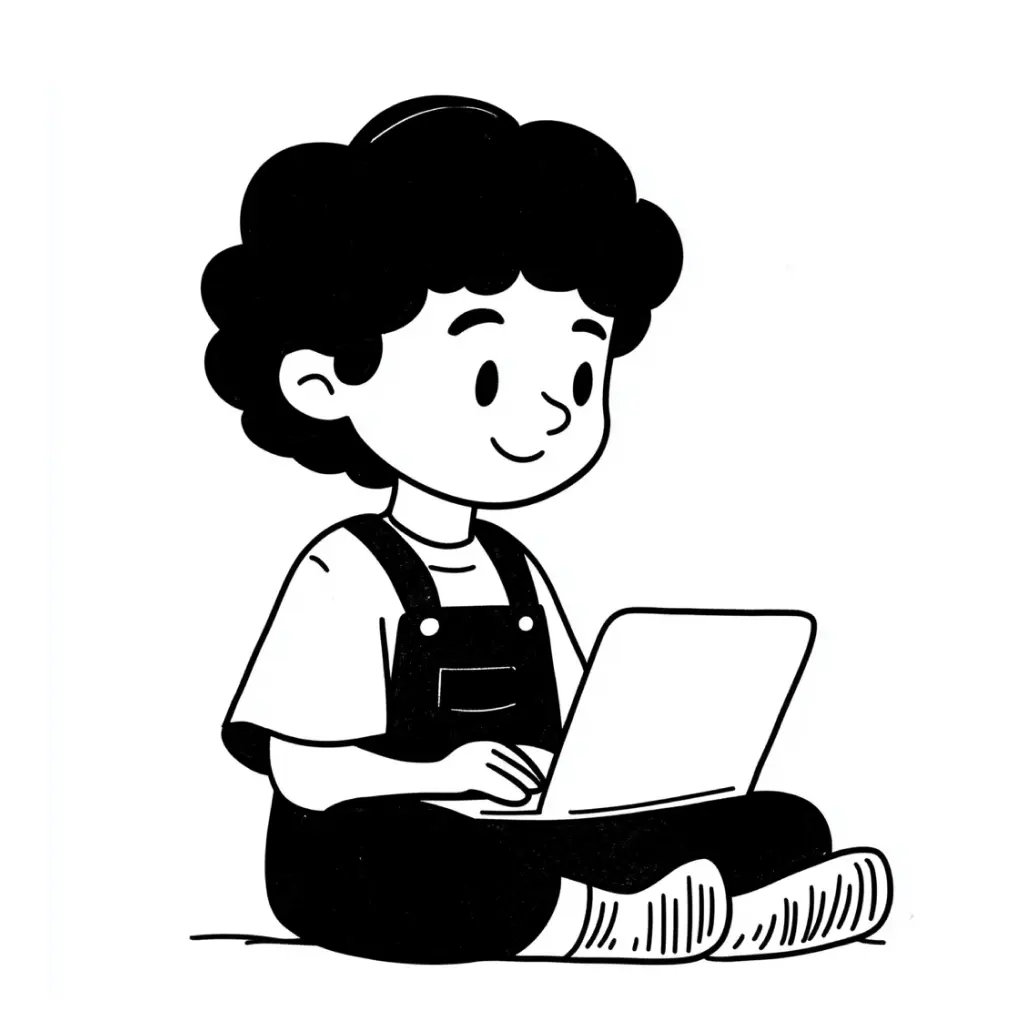Online reading school
for struggling readers
One-on-one online reading lessons with tutors designed for children aged 6–11 with reading difficulties. Our personalized approach helps kids develop reading skills and improve fluency by an average of 33% in just 8 weeks.














Dyslexia does not correlate with IQ. Children with dyslexia may even be smarter than their peers. Difficulties with reading arise because these children interact with language and analyze speech differently. Early intervention with specialized methods is essential to support their learning.
Anna Levinzon
Founder of LukuLab, linguist, university lecturer
Does your kid have these difficulties?
Does your kid have these difficulties?
If so, it can indicate that your child is struggling with dyslexia.
If so, it can indicate that your child is struggling with dyslexia.
Spending excessive time on homework
Spending excessive time on homework
Spending excessive time on homework
Struggling with completing all tasks during classroom tests
Struggling with completing all tasks during classroom tests
Struggling with completing all tasks during classroom tests
Struggling more with word-based math problems compared to number-based exercises
Struggling more with word-based math problems compared to number-based exercises
Struggling more with word-based math problems compared to number-based exercises
Avoiding reading for fun
Avoiding reading for fun
Avoiding reading for fun
Making unusual writing errors, such as mixing up letters, skipping letters, or swapping syllables
Making unusual writing errors, such as mixing up letters, skipping letters, or swapping syllables
Making unusual writing errors, such as mixing up letters, skipping letters, or swapping syllables
Finding it especially challenging to learn a foreign language
Finding it especially challenging to learn a foreign language
Finding it especially challenging to learn a foreign language


Does your child have dyslexia?
Dyslexia is a congenital neurobiological condition that makes it difficult for children to read. Want to know if your child has dyslexia?
Why do some children find it difficult to read?
Reading is not a natural process. Humans evolved without written language, so children's brains must "rewire" to learn to read. For 80% of people, this process happens easily, but for the remaining 20%, traditional teaching methods don't work. While only 3% are diagnosed with dyslexia, 20% of children experience similar difficulties.
Reading involves two phases: decoding, where readers associate letters with sounds, and word recognition, where they quickly recognize familiar words. Children who struggle with reading may have difficulty with both.
These challenges stem from a neurobiological condition: children with reading difficulties process spoken language differently. They perceive words as a whole, making it hard to break them into syllables, recognize rhymes, or use intonation when reading.
There are many myths about reading, such as that children with visual impairments see letters jumping, or that colored lenses or special fonts help dyslexic readers. However, research doesn’t support these claims.
To read fluently, children with reading difficulties need specialized help. Effective programs focus on five key areas: phonemic awareness, phonics, morphology, syntax, and vocabulary. The program should include tasks for decoding, oral exercises, and reading comprehension.
Reading is not a natural process. Humans evolved without written language, so children's brains must "rewire" to learn to read. For 80% of people, this process happens easily, but for the remaining 20%, traditional teaching methods don't work. While only 3% are diagnosed with dyslexia, 20% of children experience similar difficulties.
Reading involves two phases: decoding, where readers associate letters with sounds, and word recognition, where they quickly recognize familiar words. Children who struggle with reading may have difficulty with both.
These challenges stem from a neurobiological condition: children with reading difficulties process spoken language differently. They perceive words as a whole, making it hard to break them into syllables, recognize rhymes, or use intonation when reading.
There are many myths about reading, such as that children with visual impairments see letters jumping, or that colored lenses or special fonts help dyslexic readers. However, research doesn’t support these claims.
To read fluently, children with reading difficulties need specialized help. Effective programs focus on five key areas: phonemic awareness, phonics, morphology, syntax, and vocabulary. The program should include tasks for decoding, oral exercises, and reading comprehension.
Reading is not a natural process. Humans evolved without written language, so children's brains must "rewire" to learn to read. For 80% of people, this process happens easily, but for the remaining 20%, traditional teaching methods don't work. While only 3% are diagnosed with dyslexia, 20% of children experience similar difficulties.
Reading involves two phases: decoding, where readers associate letters with sounds, and word recognition, where they quickly recognize familiar words. Children who struggle with reading may have difficulty with both.
These challenges stem from a neurobiological condition: children with reading difficulties process spoken language differently. They perceive words as a whole, making it hard to break them into syllables, recognize rhymes, or use intonation when reading.
There are many myths about reading, such as that children with visual impairments see letters jumping, or that colored lenses or special fonts help dyslexic readers. However, research doesn’t support these claims.
Toread fluently, children with reading difficulties need specialized help. Effective programs focus on five key areas: phonemic awareness, phonics, morphology, syntax, and vocabulary. The program should include tasks for decoding, oral exercises, and reading comprehension.


What is required for classes?
Computer or tablet
Computer or tablet
Computer or tablet
Zoom app
Zoom app
Zoom app
There is no need to buy books or textbooks for classes, we fully provide the child with all the necessary materials
How are the lessons conducted?

Online screening with a child and parent
Based on the screening results, we recommend individual or group lessons, or we advise parents on how to support their child's learning at home.

Online screening with a child and parent
Based on the screening results, we recommend individual or group lessons, or we advise parents on how to support their child's learning at home.

Online screening with a child and parent
Based on the screening results, we recommend individual or group lessons, or we advise parents on how to support their child's learning at home.

Individual lesson
The duration of the lesson is 30 minutes, the lessons are held up to 4 times a week. You'll see noticeable progress in just 8 weeks!

Individual lesson
The duration of the lesson is 30 minutes, the lessons are held up to 4 times a week. You'll see noticeable progress in just 8 weeks!

Individual lesson
The duration of the lesson is 30 minutes, the lessons are held up to 4 times a week. You'll see noticeable progress in just 8 weeks!
How do we help children with dyslexia?
How do we help children with dyslexia?
LukuLab tutors work with children systematically, guiding them from one stage to the next. We use unique methods developed by professional linguists. Our approach, based on the best global practices, yields excellent results that are highly appreciated by both parents and the children themselves.


Prices
Initial Screening
Online screening on reading technique (1 hour)
£60
Initial Screening
Online screening on reading technique (1 hour)
£60
Initial Screening
Online screening on reading technique (1 hour)
£60
Lesson 30 minutes
The price includes 1 online private lesson. The teaching cycle lasts 8 weeks with 4 lessons per week. Upon completion of the cycle, we provide a report on the results and recommendations for further lessons.
£25
Per lesson
Lesson 30 minutes
The price includes 1 online private lesson. The teaching cycle lasts 8 weeks with 4 lessons per week. Upon completion of the cycle, we provide a report on the results and recommendations for further lessons.
£25
Per lesson
Lesson 30 minutes
The price includes 1 online private lesson. The teaching cycle lasts 8 weeks with 4 lessons per week. Upon completion of the cycle, we provide a report on the results and recommendations for further lessons.
£25
Per lesson
Parents say
My son's been learning with LukuLab for three years, starting from first grade. Best decision we ever made to help him with his dyslexia. Reading was a real struggle for him. But LukuLab came up with a program just for him and kept tweaking it to fit him better. Now, he reads just as good as most kids in his 4th grade. Sure, there are some specific challenges here and there, but the program keeps knocking them down. I can't thank LukuLab enough. They're our heroes!
Maria
My son's been learning with LukuLab for three years, starting from first grade. Best decision we ever made to help him with his dyslexia. Reading was a real struggle for him. But LukuLab came up with a program just for him and kept tweaking it to fit him better. Now, he reads just as good as most kids in his 4th grade. Sure, there are some specific challenges here and there, but the program keeps knocking them down. I can't thank LukuLab enough. They're our heroes!
Maria
My son's been learning with LukuLab for three years, starting from first grade. Best decision we ever made to help him with his dyslexia. Reading was a real struggle for him. But LukuLab came up with a program just for him and kept tweaking it to fit him better. Now, he reads just as good as most kids in his 4th grade. Sure, there are some specific challenges here and there, but the program keeps knocking them down. I can't thank LukuLab enough. They're our heroes!
Maria
Sonya started learning to read online when the pandemic hit. Before, she struggled with her lessons, but the LukuLab program really worked for her. Sonya looks forward to her classes; they’re far from boring, which is priceless. Now, I can say for sure she’s fallen in love with reading and books. She’s developed her own taste for children's mysteries and stories about kids her age. It’s wonderful to see her so passionate about reading.
Pauline
Sonya started learning to read online when the pandemic hit. Before, she struggled with her lessons, but the LukuLab program really worked for her. Sonya looks forward to her classes; they’re far from boring, which is priceless. Now, I can say for sure she’s fallen in love with reading and books. She’s developed her own taste for children's mysteries and stories about kids her age. It’s wonderful to see her so passionate about reading.
Pauline
Sonya started learning to read online when the pandemic hit. Before, she struggled with her lessons, but the LukuLab program really worked for her. Sonya looks forward to her classes; they’re far from boring, which is priceless. Now, I can say for sure she’s fallen in love with reading and books. She’s developed her own taste for children's mysteries and stories about kids her age. It’s wonderful to see her so passionate about reading.
Pauline
For a little over a year, my son has been attending one-on-one classes at the Reading Lab, and during this time, we have seen very positive results. His fluency has doubled, his reading has become smoother, he reads with expression, highlights intonation at the end of sentences, and uses commas correctly. In addition to these improvements, my child now has a rich vocabulary that is constantly expanding.
Irina
For a little over a year, my son has been attending one-on-one classes at the Reading Lab, and during this time, we have seen very positive results. His fluency has doubled, his reading has become smoother, he reads with expression, highlights intonation at the end of sentences, and uses commas correctly. In addition to these improvements, my child now has a rich vocabulary that is constantly expanding.
Irina
For a little over a year, my son has been attending one-on-one classes at the Reading Lab, and during this time, we have seen very positive results. His fluency has doubled, his reading has become smoother, he reads with expression, highlights intonation at the end of sentences, and uses commas correctly. In addition to these improvements, my child now has a rich vocabulary that is constantly expanding.
Irina
Teaching a child with dyslexia to read by yourself can feel like an uphill battle, mainly because it's tough for a parent to fully understand the extent of their child's struggles or know exactly how to help. LukuLab's teaching methods are crafted in a way that keeps parents engaged in the learning process without having to rack their brains over how to navigate the next challenge their child faces.
Anna
Teaching a child with dyslexia to read by yourself can feel like an uphill battle, mainly because it's tough for a parent to fully understand the extent of their child's struggles or know exactly how to help. LukuLab's teaching methods are crafted in a way that keeps parents engaged in the learning process without having to rack their brains over how to navigate the next challenge their child faces.
Anna
Teaching a child with dyslexia to read by yourself can feel like an uphill battle, mainly because it's tough for a parent to fully understand the extent of their child's struggles or know exactly how to help. LukuLab's teaching methods are crafted in a way that keeps parents engaged in the learning process without having to rack their brains over how to navigate the next challenge their child faces.
Anna
My daughter absolutely loves her reading lessons. She used to struggle with reading, but now she's improved a lot and she really enjoys it. She's even started picking out books from the shelf on her own.
Jane
My daughter absolutely loves her reading lessons. She used to struggle with reading, but now she's improved a lot and she really enjoys it. She's even started picking out books from the shelf on her own.
Jane
My daughter absolutely loves her reading lessons. She used to struggle with reading, but now she's improved a lot and she really enjoys it. She's even started picking out books from the shelf on her own.
Jane
FAQ
Does LukuLab approach work for children with attention deficits?
Does LukuLab approach work for children with attention deficits?
Does LukuLab approach work for children with attention deficits?
My children are diagnosed with dyslexia. Can LukuLab help them?
My children are diagnosed with dyslexia. Can LukuLab help them?
My children are diagnosed with dyslexia. Can LukuLab help them?
Are the exercises in your program similar to what children typically do in school?
Are the exercises in your program similar to what children typically do in school?
Are the exercises in your program similar to what children typically do in school?
How many lessons should be taken per week?
How many lessons should be taken per week?
How many lessons should be taken per week?
What skills does a child train?
What skills does a child train?
What skills does a child train?
Our teachers say
Every child with dyslexia is a unique puzzle, and finding the right strategy to help them read is both a science and an art. I love the challenge — blending research with creativity, testing ideas, and watching a child light up with progress.

Sima
Master’s in Language Sciences at Ca’ Foscari University of Venice
Every child with dyslexia is a unique puzzle, and finding the right strategy to help them read is both a science and an art. I love the challenge — blending research with creativity, testing ideas, and watching a child light up with progress.

Sima
Master’s in Language Sciences at Ca’ Foscari University of Venice
Every child with dyslexia is a unique puzzle, and finding the right strategy to help them read is both a science and an art. I love the challenge — blending research with creativity, testing ideas, and watching a child light up with progress.

Sima
Master’s in Language Sciences at Ca’ Foscari University of Venice
Working with children and reading is closely connected to my research work as I am writing a dissertation on attention during reading. It also brings joy and satisfaction from helping children and increasing their interest in reading.

Veronica
Erasmus Mundus Master’s in Clinical Linguistics at University of Groningen. Teaching Assistant at the University of Birmingham.
Working with children and reading is closely connected to my research work as I am writing a dissertation on attention during reading. It also brings joy and satisfaction from helping children and increasing their interest in reading.

Veronica
Erasmus Mundus Master’s in Clinical Linguistics at University of Groningen. Teaching Assistant at the University of Birmingham.
Working with children and reading is closely connected to my research work as I am writing a dissertation on attention during reading. It also brings joy and satisfaction from helping children and increasing their interest in reading.

Veronica
Erasmus Mundus Master’s in Clinical Linguistics at University of Groningen. Teaching Assistant at the University of Birmingham.
At LukuLab, I have had the opportunity to work with both very young readers and sixteen-year-old teenagers, engaging in everything from syllabic reading to analyzing dystopian literature. I appreciate that LukuLab allows for an individual approach to each child.

Maria
Bachelor in Philology, CELTA-certified English teacher
At LukuLab, I have had the opportunity to work with both very young readers and sixteen-year-old teenagers, engaging in everything from syllabic reading to analyzing dystopian literature. I appreciate that LukuLab allows for an individual approach to each child.

Maria
Bachelor in Philology, CELTA-certified English teacher
At LukuLab, I have had the opportunity to work with both very young readers and sixteen-year-old teenagers, engaging in everything from syllabic reading to analyzing dystopian literature. I appreciate that LukuLab allows for an individual approach to each child.

Maria
Bachelor in Philology, CELTA-certified English teacher
Lukulab values
We believe that reading must be affordable for all.
We believe that reading must be affordable for all.
We believe that reading must be affordable for all.
We actively participate in the creation of the neurodiverse and inclusive society.
We actively participate in the creation of the neurodiverse and inclusive society.
We actively participate in the creation of the neurodiverse and inclusive society.
We acknowledge the challenges that our small students face.
We acknowledge the challenges that our small students face.
We acknowledge the challenges that our small students face.
We know that struggling readers are amazing inventors and capable thinkers.
We know that struggling readers are amazing inventors and capable thinkers.
We know that struggling readers are amazing inventors and capable thinkers.
We care about emotional well-being of parents and teachers.
We care about emotional well-being of parents and teachers.
We care about emotional well-being of parents and teachers.
We are aiming towards children’s independence in learning.
We are aiming towards children’s independence in learning.
We are aiming towards children’s independence in learning.
Screening for Reading Difficulties in Schools
LukuLab has developed an innovative tool designed for schools to help teachers conduct a screening for reading difficulties. With this tool, teachers can quickly and effectively assess the likelihood of dyslexia in their students, ensuring timely support for those who need it most.
Our tests assess a wide range of reading skills, including phonological, morphological, and syntactic awareness. The report provides a detailed evaluation of each specific skill, an overall test score, and personalized recommendations for improvement.
LukuLab has developed an innovative tool designed for schools to help teachers conduct a screening for reading difficulties. With this tool, teachers can quickly and effectively assess the likelihood of dyslexia in their students, ensuring timely support for those who need it most.
Our tests assess a wide range of reading skills, including phonological, morphological, and syntactic awareness. The report provides a detailed evaluation of each specific skill, an overall test score, and personalized recommendations for improvement.
Schedule a screening
Before starting lessons, we offer a one-hour online screening to better understand your child's unique reading strengths and challenges.
The screening is split into two parts: first, we spend about 30 minutes working one-on-one with your child while you're present. After that, we share our observations and recommendations with you.
The session focuses on core language skills such as phonological, morphological, and syntactic awareness. Most of the activities involve speaking. Your child will only read aloud for about one or two minutes. The session feels more like a fun, engaging lesson than a test. Children often enjoy the activities, which are designed as language games.
No preparation is needed. Our goal is to create a warm and respectful atmosphere where your child feels comfortable.
Based on the screening, we’ll let you know whether our reading lessons would be a good fit for your child and discuss possible next steps.
Schedule a screening
Before starting lessons, we offer a one-hour online screening to better understand your child's unique reading strengths and challenges.
The screening is split into two parts: first, we spend about 30 minutes working one-on-one with your child while you're present. After that, we share our observations and recommendations with you.
The session focuses on core language skills such as phonological, morphological, and syntactic awareness. Most of the activities involve speaking. Your child will only read aloud for about one or two minutes. The session feels more like a fun, engaging lesson than a test. Children often enjoy the activities, which are designed as language games.
No preparation is needed. Our goal is to create a warm and respectful atmosphere where your child feels comfortable.
Based on the screening, we’ll let you know whether our reading lessons would be a good fit for your child and discuss possible next steps.
Schedule a screening
Before starting lessons, we offer a one-hour online screening to better understand your child's unique reading strengths and challenges.
The screening is split into two parts: first, we spend about 30 minutes working one-on-one with your child while you're present. After that, we share our observations and recommendations with you.
The session focuses on core language skills such as phonological, morphological, and syntactic awareness. Most of the activities involve speaking. Your child will only read aloud for about one or two minutes. The session feels more like a fun, engaging lesson than a test. Children often enjoy the activities, which are designed as language games.
No preparation is needed. Our goal is to create a warm and respectful atmosphere where your child feels comfortable.
Based on the screening, we’ll let you know whether our reading lessons would be a good fit for your child and discuss possible next steps.
Book a Free Consultation
A free online consultation on Zoom with LukuLab experts. During the consultation, we will give you detailed information about our classes, answer your questions, and discuss whether our program is a good fit for your child. The consultation is for parents only; children do not attend.
About
For many years, we have been teaching reading to kids who are unmotivated to read. In our online classes, children improve their academic performance: they practice reading fluently, confidently expressing their own and other people's thoughts, extracting information from complex texts on various topics. We speak to children of the 21st century in a language they understand.
The LukuLab approach has been tested with the Bath Spa University SpLD/Dyslexia MA programme. We collaborate with the Helsinki Education Hub and UCL EdTech Labs in London.


Anna Levinzon, the CEO of Lukulab, is an experienced educator and linguist. She has taught at both universities and schools, and since 2017, she has been leading educational projects that help kids improve their reading, writing, and critical thinking skills. Thanks to her work, thousands of children have made progress in these areas.
In 2020, Anna used her knowledge of linguistics to create the Reading Laboratory, a program designed to help children with dyslexia learn to read. The Reading Laboratory method combines the well-known Orton-Gillingham approach with modern research on child literacy and linguistics.
Book a Free Consultation



